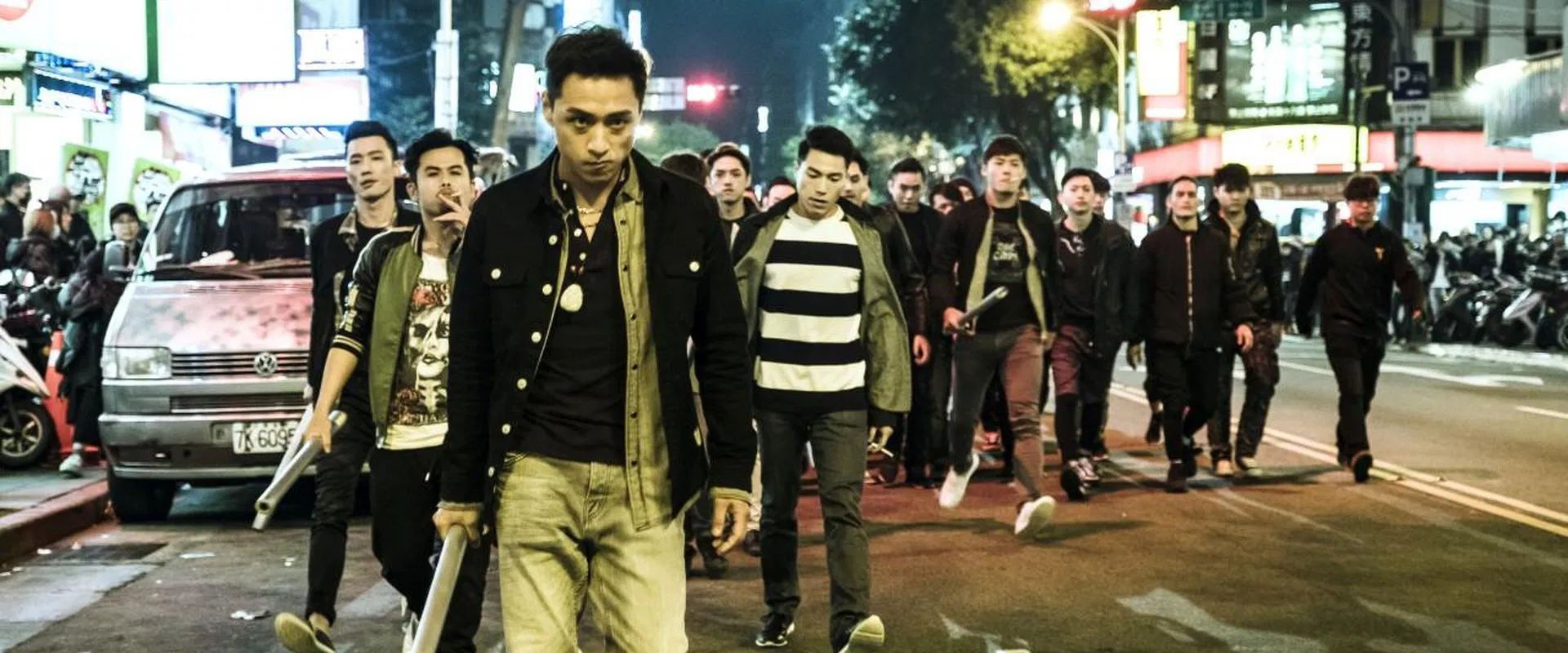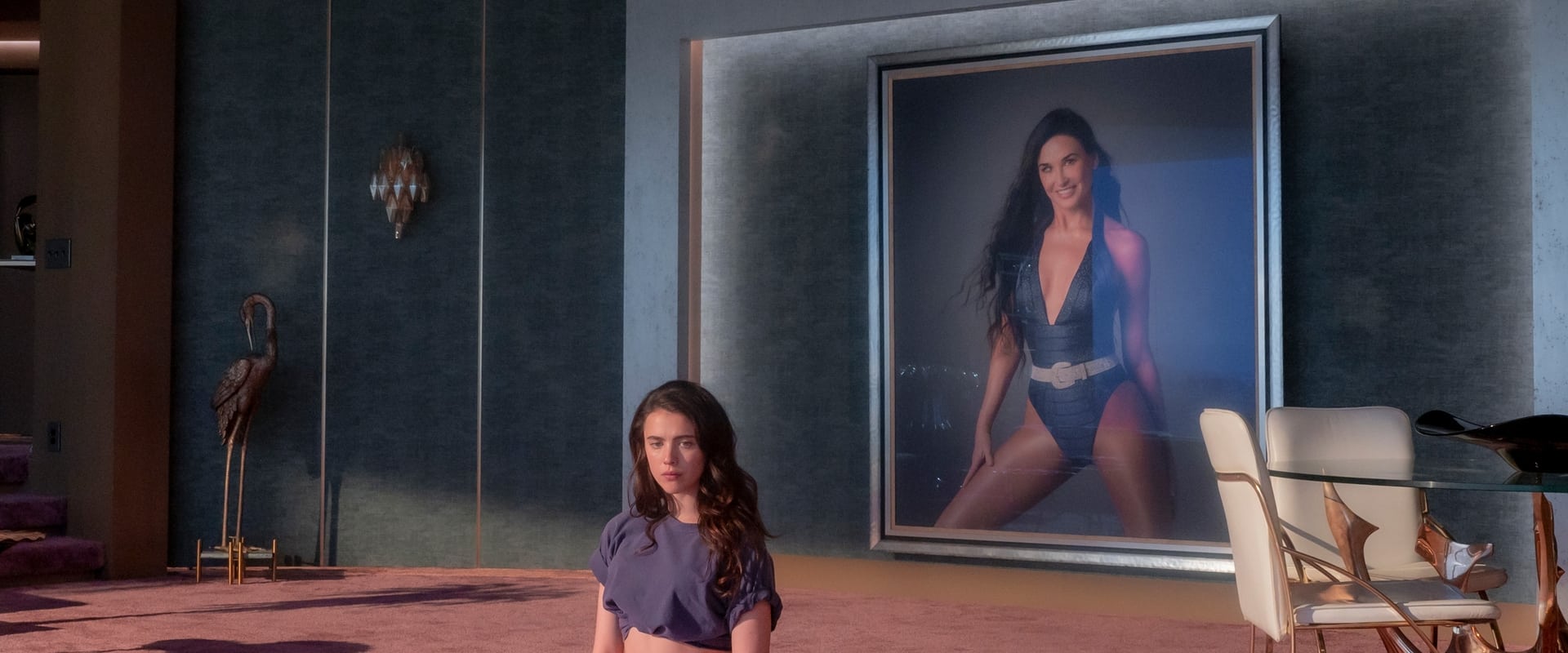One sits down for Gatao 2: Rise of the King expecting, at most, a competent riff on the familiar gangster recipe—a pinch of violence here, a patina of brotherhood there, all slathered in the genre’s lacquer of betrayal and blood. What director Yen Cheng-Kuo delivers is something else: a movie that moves with the heedless energy of a street brawl, inhaling the cologne of loyalty and machismo until you’re nearly suffocated—and, to its credit, occasionally exhilarated—by the heady fumes of its own ambition.
Let’s not kid ourselves—Taiwanese gangster cinema has long been the overlooked stepchild to Hong Kong’s groomed, dazzling triad epics. Yen knows this, and his approach is less a rebuke than a challenge flag, thrown with swagger. His Taipei is all oily neon, grimy corners, and tension strung tight enough to slice a knuckle. The plot—faithful to every twist and turn charted by the handbook of underworld stories—follows Ren (Wang Shih-hsien), an ambitious street boss with eyes as much on survival as on the myth of righteous leadership. When his frenemy Jian (Collin Chou, slipping out of his usual action-villain drag and into something like real menace) returns to ignite a gang war, the fuse burns swiftly.
If you come looking for novelty in storytelling, you may feel as though you’ve been sold yesterday’s meat. The betrayals, the reversals, the inevitable outbursts of violence—they all unfold with the certainty of a well-rehearsed ritual. But routine is not always a vice; Yen and his sprawling cast perform it with such conviction and chest-beating seriousness that the film feels less like an imitation and more like a statement of intent. It’s as if the director is saying: “This, too, is Taiwan’s dream of criminal grandeur—fit to sit with the gaudiest from Hong Kong, even if the wine is local.”
Wang Shih-hsien’s Ren is a brooding pillar—never quite a tragic hero, but a man cornered by brutal necessity and the ineffable pressure to do right by a code that chews men and spits them out as legends or ghosts. He’s the vessel for the fragments of morality Yen would like to believe drift through this violent, swirling world. But truly, the reason to watch is Collin Chou, whose Jian invades the film with a cold intelligence—a villain done with the conventions of snarling, here to remind everyone that a smile may be crueller than a fist. These two, locked in an ever-tightening dance of power and memory, give the film whatever emotional resonance it musters.
What of the women? They drift at the margins: plot fixtures, reminders of what’s at stake or what’s already lost. Peggy Tseng, as Ren’s wife, marks her scenes with the air of someone who knows she is there to bear witness or loss, but rarely to assert meaning.
The filmmaking itself—the camera swerves, the propulsive edits, those fights orchestrated with a precision that flirts with chaos—declares a new confidence. Yen is an over-eager host, keen to make sure no guest finds a quiet moment. The street brawl, staged like a city-wide coup de théâtre, might be the most kinetic thing Taiwan has yet offered this genre; you feel the scuffed shoes, the jostle and roar. If Yen overreaches, it’s the sort of excess a debut director can be forgiven, perhaps even admired, for attempting.
Dialogue is genre-standard. The men bark lines about honor, vengeance, and family with the intensity of true believers—dialogue that wears its clichés with the noble embarassedness of a soldier’s old wound. Yet when the script breaks free—when camaraderie flickers, when loss lands with an unforced weight—the film achieves a bruised poetry. Yen, like the Hong Kong directors he emulates, is less interested in literary innovation than in emotional velocity.
What gives Gatao 2 its limited pulse is its insistence on the cost of ambition—the fractures that run through any attempt to climb above one’s origins, only to find the same mud on every boot. Questions of tradition, modernity, and Taiwan’s own uneasy place in the lineage of gangster mythos are sewn, almost furtively, between the punches. Yen draws from Takashi Miike’s over-the-top eccentricity, but mercifully finds space for genuine (if fleeting) melancholy.
Is Gatao 2 groundbreaking? No. Its blood runs purely within the sustainable, closed circuit of its genre. But in the comparison to its predecessor, it towers: the acting is sharper, the narrative more intricate, the stylistic assurance markedly bolder. Collin Chou’s performance in particular gives the movie the charge its formula so often lacks. Where the first Gatao was a calling card, this is—if not yet the coronation—certainly a crowning ceremony. In the world of gangster cinema, imitation is often the highest aspiration, but here, at least, Taiwan claims its place at the table, hunched over the same bowl of ambition and regret.
Watching Gatao 2 is like revisiting a favorite lament—a familiar song, now played louder and with new muscle, but not less mournful for its braggadocio. It makes you wish the film had risked a little more, leaned harder into the cracks of its characters instead of shining the spotlight so reliably on bloodshed and bravado. Still, the film leaves its bruises; it honors its bloody roots while pushing for something grander, swearing it will not be overlooked.
Taiwanese gangster cinema may never out-dazzle Hong Kong’s or out-weird Japan’s, but with Gatao 2 it proves it can stand in the ring and trade blows—with just enough style, just enough heart, and more than enough bruising for those with the appetite to watch it all unfold.


